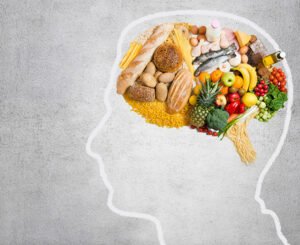The Synergy of Mental Wellbeing and Proper Nutrition

Good mental health is something that everyone wants, but most don’t realize how important it is to be mindful of their nutrition in order to get it. A diet that is rich in the right nutrients can do much more than simply provide the body with energy. The materials that we consume can have a major affect on the health of the brain. Eating right can contribute to better grades in school, a more upbeat outlook on life and even better physical health. Maintaining good mental health is crucial for overall well-being, and nutrition can play an important role in supporting mental health. Here are some of the key nutrients that have been shown to support mental health:
- Omega-3 Fatty Acids: Omega-3 fatty acids are essential fats that are important for brain function and development. Studies have found that omega-3s may help reduce symptoms of depression and anxiety, and may help improve cognitive function. Good sources of omega-3s include fatty fish, such as salmon and mackerel, as well as nuts and seeds, such as flaxseeds and walnuts.
- B Vitamins: B vitamins, particularly vitamin B12 and folate, are important for brain function and mood regulation. Studies have found that low levels of B vitamins are associated with an increased risk of depression and other mental health disorders. Good sources of B vitamins include leafy greens, whole grains, eggs, and fortified cereals.
- Vitamin D: Vitamin D is an important nutrient for bone health, but it may also play a role in mental health. Studies have found that low levels of vitamin D are associated with an increased risk of depression and other mental health disorders. Good sources of vitamin D include fatty fish, egg yolks, and fortified foods.
- Magnesium: Magnesium is an important mineral that is involved in many processes in the body, including brain function and mood regulation. Studies have found that magnesium may help reduce symptoms of depression and anxiety. Good sources of magnesium include leafy greens, nuts, seeds, and whole grains.
- Antioxidants: Antioxidants, such as vitamins C and E, and flavonoids, are important for protecting the brain from oxidative stress, which can damage brain cells and contribute to mental health disorders. Good sources of antioxidants include fruits and vegetables, such as berries, citrus fruits, and leafy greens.
- Iron: Iron helps to create myelin, a fat that surrounds and supports the brain’s neurons. Iron can be found in lean meats, beans, and tofu.
- Zinc: Zinc plays a role in the efficient functioning of the brain, improving mood and cognitive function.
In addition to these nutritional elements that can be found in food, proper hydration is important for keeping the brain healthy. The human brain is composed of 75% water, with less hydration resulting in impaired mental performance, irritability, and an inability to concentrate.
While diet is an important factor in mental health, it is not the only one. A good diet should be complemented by regular physical activity, quality sleep, and minimal stress. All these aspects of life are interconnected and should be treated as part of a comprehensive approach to health and wellness.
Good mental health starts with good nutrition. A diet rich in vitamins, minerals and essential fatty acids can help to keep the brain in prime condition and support emotional well-being. While it is important to get the right nutrients, this should always be coupled with a healthy lifestyle and stress-relief activities. Eating right is key to a healthier mind, and getting the right nutrients is important for maintaining good mental health. Omega-3 fatty acids, B vitamins, vitamin D, magnesium, and antioxidants are all important nutrients that can support brain function and mood regulation. It’s important to eat a varied and balanced diet that includes a range of nutrient-dense foods to support overall health and well-being, including mental health. Additionally, it’s always a good idea to consult with a healthcare professional before making significant dietary changes or starting new supplements.

Comments